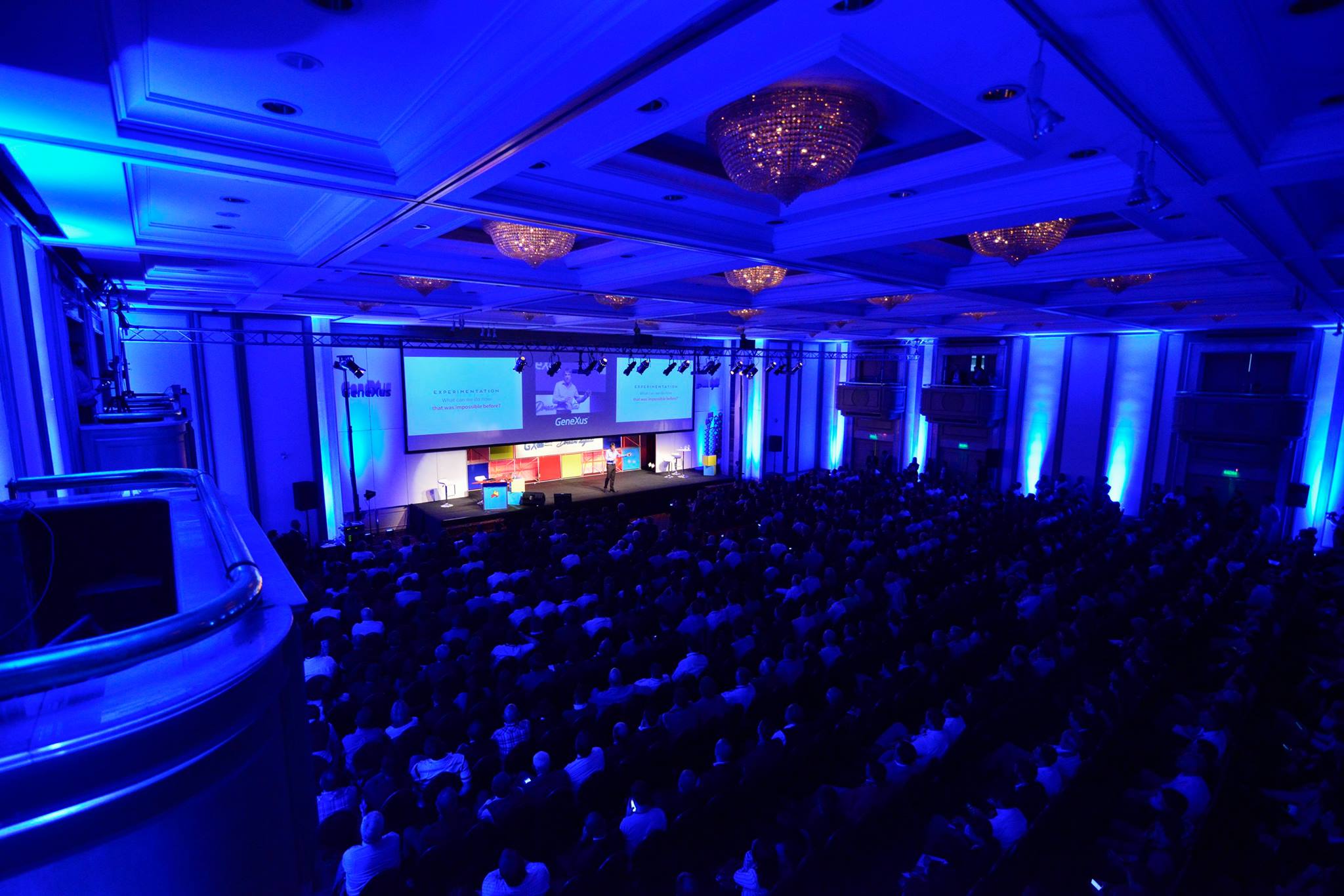
Nearly 4,000 technology experts and enthusiasts gathered at #GX26 to learn about the latest trends in software development. In addition to the much-awaited release of GeneXus 15, the 26th Meeting was also the setting chosen to announce an agreement between GeneXus and the Inter-American Development Bank (IDB) to support new digital projects in the region.
The 26th edition of the GeneXus Meeting, the most important technology and innovation event in Latin America, ended last Wednesday. Its nearly 4,000 attendees left with the feeling that digital transformation is not a threat but an opportunity for companies in the region.

Nicolás Jodal, GeneXus CEO, closed the Meeting with a clear analysis of the challenge that unsettles many Latin American companies: digital transformation. In reference to a quote by the Uruguayan advertising professional Álvaro Moré -“We will all have to face our own Uber”- during this session he recalled stories from industries where digital transformation changed the business paradigm.
“The key to avoid being made obsolete by technological evolution is to be clearly customer-oriented: give them only the information they want, entertain them and save them time. This is the only way to win,” stated Mr. Jodal.
The most anticipated announcement…
GeneXus 15 was released during the Meeting. This new version brought to the software industry for digital transformation stands out due to its integration with the latest technologies and systems, such as IoT, the Cloud or cognitive technologies. In addition, another unexpected announcement was made: GeneXus and the Inter-American Development Bank (IDB) will begin to support projects from entrepreneurs throughout the region to promote digital transformation.
Even though Nicolás Jodal announced the agreement between GeneXus and the IDB at the event’s opening, it continued to be one of the most talked-about topics among attendees. The alliance will be implemented through THALESLAB, the company’s division that for two years has been supporting startups and corporate enterprises in Uruguay.
“We at THALESLAB started small and at national level, but now we want to advance to the second phase because we believe that we’re strong enough to move on,” explained the CEO before introducing Ana Castillo, Senior Specialist at the Multilateral Investment Fund (MIF) managed by the IDB.
“We’ve decided to enter into this alliance with GeneXus to promote the creation of quality jobs, and because the company has a large community of developers who can drive the digital transformation that we’re currently experiencing,” explained Ms. Castillo.
Alliances with Hana Cloud Platform and Cognitive Technology
In addition, Alberto Oppenheimer, SAP Solutions Manager, introduced the integration of GeneXus 15 with HANA Cloud Platform, and IBM announced its strategic alliance with GeneXus and Cognitiva LA, the company that markets its artificial intelligence solutions in the region.
Alejandro Fernández, Ecosystem Manager at Cognitiva for Latin America, said that thanks to the code generator provided by GeneXus, “developers can use predefined elements to quickly develop contents for Watson, in addition to a toolkit to create applications based on this IBM technology. For example, this alliance is aimed at improving people’s quality of life through enhanced healthcare,” added the spokesperson.
Gustavo Carriquiry, GeneXus COO, affirms that this alliance operates through a process involving Machine Learning and Artificial Intelligence. “We provide an artificial intelligence machine, and have found in IBM Watson an opportunity to take this technology directly to customers and improve their businesses. All Watson APIs are compatible with GeneXus 15; as a result, we’ve generated a new way of developing this technology.”
During the three days of the Meeting, cognitive technology and artificial intelligence models were discussed, and the latest software and hardware trends in various industries were presented. However, the final message focused on the fact that even though software is taking over the world, the key lies in how companies adapt to it. “When faced with this pain, we need to be digitally strong and act fast,” diagnosed Mr. Jodal. Just like existing companies have a physical life, “now they need a digital life.” To this end, we must focus on identifying the digital assets of every company and how to exploit them.